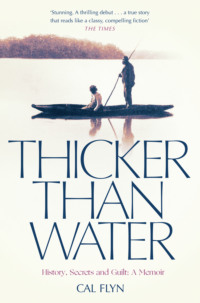
Thicker Than Water: History, Secrets and Guilt: A Memoir
As the American colony grew restless, it was Pitt the Younger’s Edinburghian right-hand man Henry Dundas – bitterly nicknamed ‘the uncrowned king of Scotland’ – who called most vocally for the harsh punishment of the rebels. He also devoted much time and energy to blocking attempts to outlaw the slave trade – according to one estimate, he single-handedly delayed its abolition in the British Empire by ten or fifteen years through his ‘skilful obstructions’.
As Home Secretary, Dundas acted to open India to his fellow Scots, and they soon came to dominate the administration of the colony and the East India Company. The first three governors general of India were Scots, and later, seven of the twelve viceroys. Others, like Sir Arthur Hamilton-Gordon, son of the Fourth Earl of Aberdeen, skipped from colony to colony, serving as governor of Trinidad, Mauritius, Fiji, New Zealand, and finally Ceylon (modern-day Sri Lanka).
Thus in America, India, the Caribbean and the Pacific, the hand of empire stretched out in the form of opportunistic Scots, as the colonised became the colonisers. In Gippsland, Australia, Angus McMillan wreaked destruction upon the indigenous people in the name of British expansion.
I had known – however vaguely – that men like him had existed. Men who had fled a homeland made miserable by colonisation, then made it their lives’ work to extend the empire, some of them, like McMillan, killing wholesale in its name. But whereas previously they had been aberrations, incongruous footnotes to a rousing narrative, now here he was, right there in the family tree. Part of my story, part of my heritage, part of me.
I returned to London determined to put the whole sorry business out of my mind. I took another job, at another paper, and tried to concentrate on fitting in and getting on. But I couldn’t forget what had been, for me, a momentous discovery. It rolled around in the back of my head, unsettling me. All my easy assumptions about my heritage had proved to be flimsy.
What I was feeling reminded me of a concept I’d once stumbled across in a book: ‘intergenerational guilt’. It described a generation of Germans who felt a profound sense of guilt and remorse for their nation’s role in the Holocaust, although they had not been born at the time it took place. At the time I had flicked through the pages with indifferent curiosity, but now I rolled back through their reasoning. I couldn’t help but wonder: what responsibility for our ancestors’ actions do we all unwittingly take on?
It seemed to me that McMillan’s story sat at the very crossroads of what makes a person victim or aggressor, good or evil. From my reading I had been presented with two characters: McMillan the hero – the hard-working, generous Scot honoured with plaques, portraits and cairns – and McMillan the villain – a bloodthirsty tyrant who rampaged through the bush, cutting down unarmed women and children. But what was the truth? I was left with the task of fitting both together to construct the image of one man, seen from two different directions.
Was it the views of his contemporaries or the harsh realities of life in the outback that had prompted such an apparent transformation – from virtuous Presbyterian lad to cold-blooded killer – or even the ravages of the landscape itself? I struck upon the idea of travelling to Australia to retrace his journey, as closely as I could, in search of the answer. Perhaps I might find it wandering still the rough tracks through the bush in the Snowy River gorge and the foothills of the Australian Alps. Perhaps it was grazing with the cattle in the Gippsland pastures.
There too I could confront the true legacy of McMillan’s actions by seeking out the present-day representatives of the Aboriginal group he had terrorised. What state were they in? What could I do to help them? Would they want my pity? I had no way of knowing; I would have to go there to find out.
Конец ознакомительного фрагмента.
Текст предоставлен ООО «ЛитРес».
Прочитайте эту книгу целиком, купив полную легальную версию на ЛитРес.
Безопасно оплатить книгу можно банковской картой Visa, MasterCard, Maestro, со счета мобильного телефона, с платежного терминала, в салоне МТС или Связной, через PayPal, WebMoney, Яндекс.Деньги, QIWI Кошелек, бонусными картами или другим удобным Вам способом.
Вы ознакомились с фрагментом книги.
Для бесплатного чтения открыта только часть текста.
Приобретайте полный текст книги у нашего партнера:
Всего 10 форматов

